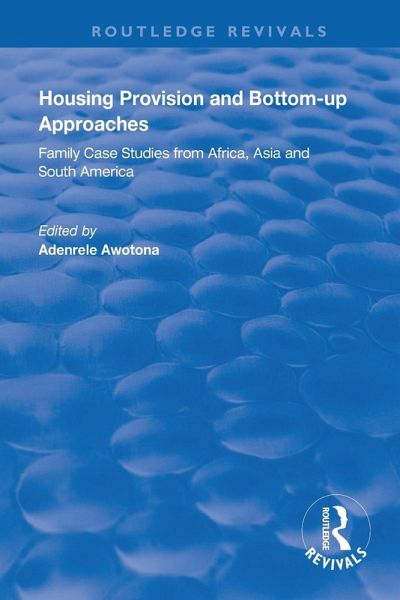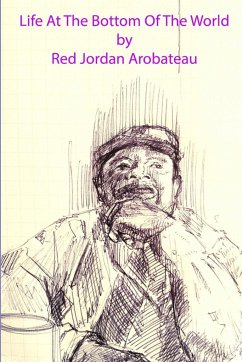
Housing Provision and Bottom-up Approaches
Family Case Studies from Africa, Asia and South America
Herausgeber: Awotona, Adenrele
Versandkostenfrei!
Versandfertig in 1-2 Wochen
32,99 €
inkl. MwSt.
Weitere Ausgaben:

PAYBACK Punkte
16 °P sammeln!
First published in 1999, this book consists of in-depth family case studies from Africa, Asia and South America. The purpose of the book is to give a clear understanding of the physical and non-physical structures in bottom-up housing approaches. Physical structures include design aspects, materials, infrastructure and construction methods and stages. Non-physical structures include finance sources, participation and decision processes. All these elements present a challenging task for academics, research, policy makers and non-governmental organizations when intervening in bottom-up housing a...
First published in 1999, this book consists of in-depth family case studies from Africa, Asia and South America. The purpose of the book is to give a clear understanding of the physical and non-physical structures in bottom-up housing approaches. Physical structures include design aspects, materials, infrastructure and construction methods and stages. Non-physical structures include finance sources, participation and decision processes. All these elements present a challenging task for academics, research, policy makers and non-governmental organizations when intervening in bottom-up housing approaches. The book consists of four sections. Section I is an overview of conceptual issues and cross-national studies. Section II through IV are composed of case studies and fieldwork experiences from Africa, Asia (including the Middle East) and South America.














